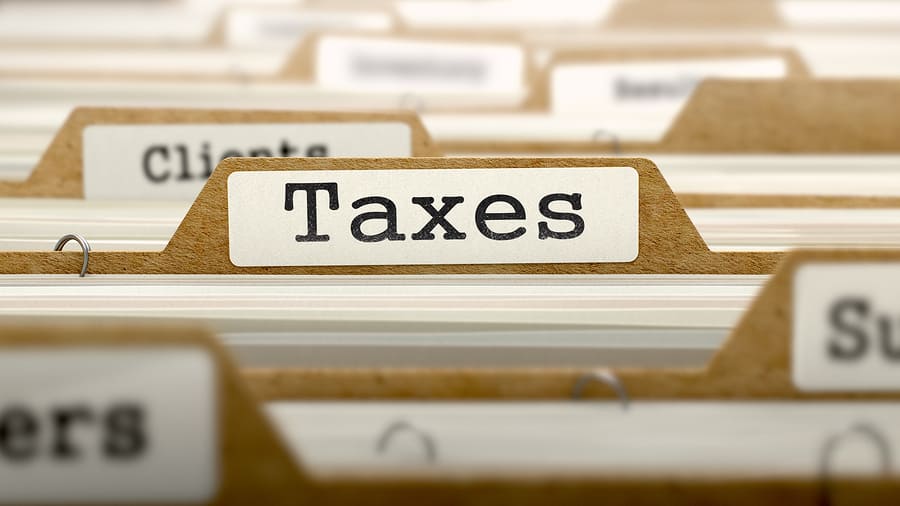Contents
What Tax Does A Limited Company Pay
Other Types Of Tax That Are Related To Corporation Tax
Introduction
One of the reasons business owners really struggle with understanding tax for limited companies is because there are so many different ones that can apply. While most people would think about corporation tax on their company profits, the reality is for most business owners there are also employee, employer, VAT and personal taxes involved. For the purposes of this article we have focused on corporation tax but I’m currently writing further articles to cover the full range of business taxes.
What tax does a limited company pay?
Corporation tax is usually the first thing that comes to mind when people consider the taxes that apply to the money a company makes and it is declared to HMRC using a corporation tax return (CT600), which would usually have a full set of accounts attached to show how the profit was worked out.
Income Tax
Unlike sole-trader businesses, UK companies have a completely separate regime of corporate taxes and while currently self-employed people pay income tax at the basic rate of 20% or even 40% or 45%, if higher or additional, companies with profits start to pay corporation tax at the 19% rate.
Accounting year vs. tax year
There is also the major difference that corporate tax is worked out based on a companies accounting period which can vary between companies, compared to a sole-traders income tax which is usually worked out over a tax year (e.g. April 2023 – April 2024).
How much is corporation tax in 2025?
Two years ago this topic used to be much easier to write about, because the rate of corporation tax which was set at 19% of taxable profits and chargeable gains was the same for both the small profits rate and the corporation tax main rate.
New UK corporation tax rate
The government announced new corporation tax rates will take effect from 1 April 2023, creating a gradual increase based on the company’s profits, ranging from a small profits rate of 19% all the way to a main rate of 25% between £50,000 and £250,000 respectively. Determining how much corporation tax you pay for your business has suddenly become far more complex then before.
How to work out tax if part of your accounting period is within the old regime
To add to the complexity a company could also have two different corporation tax regimes applied to it if it’s accounting period straddles the 1st April 2023, as the flat 19% applied before then and the new tax rates applied after.
While marginal relief creates a hybrid between the small profits rate and corporation tax main rate for company’s profits between £50,000 and 250,000, there could be a further hybridisation due to two different tax regimes applying.
If your level of business activity means that profits aren’t low enough to benefit from the small profits rate, but also aren’t high enough for the corporation tax main rate which usually effects large companies to apply, then the rate for your corporation tax bill will be determined using marginal relief.

What is Marginal Relief?
This means that if your limited company has a profit of £50k or less then it will pay CT at a rate of 19%, if it’s more than £250k then the corporation tax rate will be 25%, and if it’s somewhere in the middle then it will be…..somewhere in the middle.
The gradual tapering of the corporation tax rate based on the company profits is known as marginal relief and there are exceptions that mean not every company has access, and you should carefully consider the criteria for eligible companies.
How do I calculate my corporation tax?
The calculation is straightforward and requires multiplying the correct corporation tax rate with your profit for the relevant accounting periods. In general your taxable profit is calculated by taking your businesses sales, deducting your cost of sales and other allowable business expenses and then applying any other appropriate corporation tax relief schemes or tax adjustments.
What are taxable profits?
It’s worth understanding that accounting profit and taxable profit are two different things and applying a percentage to the annual profits you see in your accounts won’t automatically get you the correct corporation tax bill.
How much tax do you pay as a limited company?
To correctly work it out you would need to start with your accounting profit and then remove any non allowable business expenses like client entertaining and depreciation and then replace them with the HMRC equivalent, for example capital allowances, full expensing or annual investment allowance.
What is a deferred tax account?
As you can imagine the difference in the way the tax system treats depreciation is one of the biggest drivers in the difference between accounting profits and taxable profits and this is usually the reason companies have a deferred tax account to reflect this.
Who else pays corporation tax?
Corporation tax isn’t exclusive to a UK companies UK operations and it should also apply to worldwide profits for that company. There’s a raft of tax schemes that get companies involved and often entangled in them by utilising the opportunity to offshore profits, however you need to be incredibly careful about these as there is very little consumer protection available for corporate entities and they can often land you with severe tax consequences.

Do you pay corporation tax if you make no profit?
It’s worth considering that unlike VAT which is a tax on turnover, or PAYE which is a tax on employment, UK corporation tax only applies to your business profits. While it is never preferable to make a loss, this does mean that businesses without taxable profits in a financial year will not have a corporation tax bill.
In addition to this it is also possible to carry forwards (or backwards) loss relief to give you a saving in the future or create a refund based on prior year corporation tax you paid.
Can’t I just split my company into several companies and pay corporation tax at a lower rate?
If paying corporation tax at a higher rate isn’t an attractive proposition for you then you might be tempted to split your business out into two separate companies, where each one makes less profit and therefore pays tax at a lower rate than if they were combined.
While this might sound too good to be true, aside from the practical difficulties and expenses of running two companies instead of one, there is a whole expanse of tax legislation that deals with combining businesses for tax purposes so HMRC don’t lose out.
Associated Companies
The associated company rules are set out to prevent companies that have been split gaining a tax advantage and focus on combining entities for corporation tax purposes based on commonality in their controlling parties or direct parent subsidiary relationships.
In general this means that if a business owns another business or they are controlled by the same people then the allowances and thresholds when calculating the corporation tax rate are split over the two or more of them. There is a really good example which outlines how control is worked out in this scenario.
How much tax will my Ltd company pay?
One of the biggest causes of business failure we’ve seen over the years occurs when business owners lose track of their tax liabilities and as a result end up with cash flow issues when it becomes time to pay them. It’s vital for small businesses to have a system to track and monitor potential tax bills so they aren’t caught out.

Monthly estimates
In an ideal world you would do a profit calculation every month and then put the tax money aside, but a more practical compromise would be to ask your accountant what proportion of your sales you should set aside based on your targets. This gives you the option to run a simple sales report or unrefined P&L and then transfer the money to your tax savings account.
It is also worth mentioning that not all companies have a bill at the end of the year and sometimes in cases where they have utilised R&D tax credits or have already had tax deducted under the Construction Industry Scheme (CIS) then they might actually be owed a refund.
When do you have to pay corporation tax?
In general your corporation tax bill is due nine months and one day after the end of the accounting period, but it’s worth noting that if your trading profits are above £1.5 million or if your accounting period was longer than 12 months then you may have a different corporation tax deadline or you may have to pay tax in instalments.
For example if you have two tax returns relating to one set of annual accounts, because a CT600 company tax return can’t cover a period of more than 12 months, so some of the tax would technically be due 9 months and a day after the first 12 months covered by the CT600’s.
What happens if I can’t afford to pay my corporation tax bills?
If you can’t pay by the corporation tax deadline then you should still file your corporation tax return and accounts on time as there are significant penalties from HMRC and Companies House for late submission and these can make you situation much worse.
No penalties
Unlike some of the other taxes however, there are no penalties for paying your corporation tax late and the system charges your company interest at (currently 7.75% APR) and you will receive numerous notifications chasing for payment.
If you persist in your non payment then HMRC may take steps to use bailiffs or enforcement officers to collect the debt and will then eventually bring in the Official Receiver to wind up your company and investigate what went wrong.
Why you must act responsibly
Prioritising your own pay over your tax bills can lead to personal consequences for you as a director, especially if you undertake artificial behaviour, have taken illegal dividends or have an overdrawn directors loan account!

Other types of tax that are related to corporation tax
S455 Tax – When you owe your company money
Dividend and employment taxes can be expensive and for some business owners the temptation of loaning themselves money instead of issuing it as a salary or dividend is just too tempting.
Unfortunately for them the rules relating to overdrawn directors loan accounts come into play and a tax charge of 33.75% arises if the loan hasn’t been paid back within 9 months, is essentially a deposit and can be reclaimed once the loan balance has been repaid via issuing salary and dividends, entering expenses or transferring money back to the business.
It’s worth noting that if the loan amount was over £10k and it was interest free, then you may also have to pay tax on the employee benefit and declare it on your P11d return.
CT61 tax – When your company owes you money
We discussed how you could end up with a tax bill if you owe your company money, but in an interesting reversal it is possible to charge your company interest at a commercial rate when it owes you money.
The interest is tax deductible for the company, however depending on whether you have any other sources of income you could receive up to £6k a year in interest tax free. This is especially relevant right now (December 2023) because commercial rates are around 15%.
The CT61 tax return is used to declare how much tax is deducted from you by your company before it pays your interest to you. This tax is then paid over to HMRC and then you would reclaim it on your personal tax return, which means that overall there is no tax bill to pay on it.
Does corporation tax only apply to limited companies?
Corporation tax isn’t exclusively applied to limited companies and also applies equally to the following:
Foreign companies with UK offices or branch
Clubs, co-operatives or other unincorporated associations, for example community groups or sports clubs
Non resident companies operating in the UK without offices or a branch aren’t required to pay UK corporation tax rates, they would instead pay these in the country in which the company is registered. Even in cases where they do have an office in the UK, a common tax strategy is often to use management charges between the foreign parent and UK companies in order to transfer profits to the country where the corporation tax rates are the lowest.
Summary
Working out corporation tax rates is no easy task especially after 1 April 2023 when tax rates have changed significantly, now is the time to get professional advice not only to help you lower your tax bill but also to ensure you don’t make a serious mistake in your calculation.
If you want to discuss how the new rate of corporation tax applies to your business activity, then get in touch. We’re a firm of accountants based in Northampton, but we work with businesses all over the country so get in touch for a free consultation.


